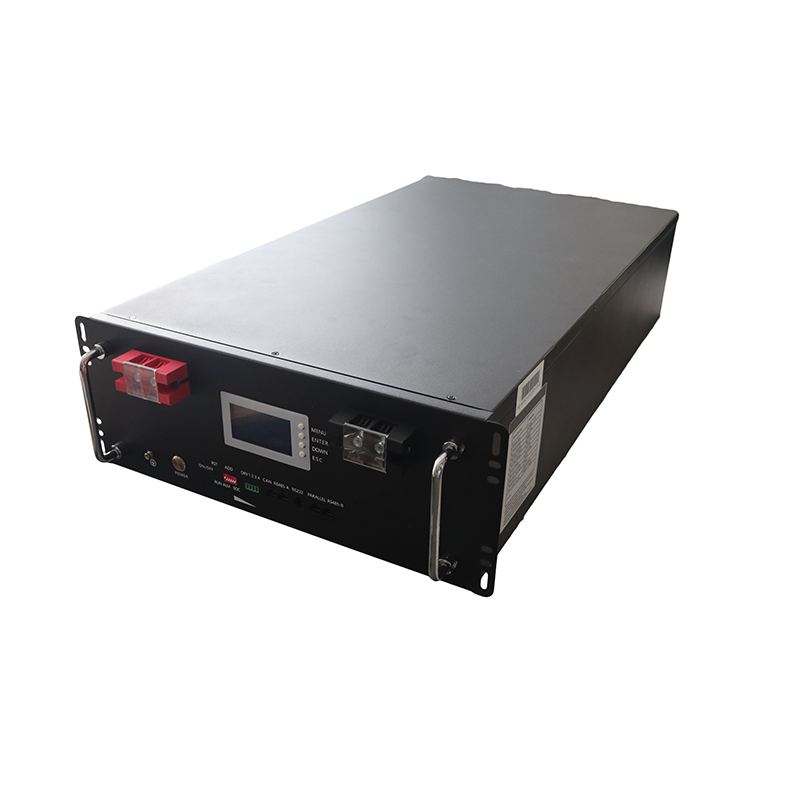Exploring the Longevity of Golf Cart Lithium Batteries: A Comprehensive Guide
Exploring the Longevity of Golf Cart Lithium Batteries
Golf carts have become increasingly popular, not just on golf courses but also in communities, campuses, and industrial applications. With the transition from traditional lead-acid batteries to lithium batteries, users are noticing significant improvements in performance, efficiency, and longevity. In this comprehensive article, we will delve
2025-09-01

Exploring the Longevity of Golf Cart Lithium Batteries
Golf carts have become increasingly popular, not just on golf courses but also in communities, campuses, and industrial applications. With the transition from traditional lead-acid batteries to lithium batteries, users are noticing significant improvements in performance, efficiency, and longevity. In this comprehensive article, we will delve into the various factors affecting the lifespan of golf cart lithium batteries and provide practical tips to extend their longevity.
Understanding Lithium Batteries in Golf Carts
Lithium batteries have revolutionized the way we power electric vehicles, including golf carts. Unlike traditional lead-acid batteries, lithium batteries offer numerous advantages such as lighter weight, faster charging times, and longer cycle life. Their chemistry allows for deeper discharges without the risk of damaging the battery, making them an ideal choice for golf carts.
Benefits of Lithium Batteries over Lead-Acid Batteries
1. **Longer Lifespan**: Lithium batteries can last up to 10 years or more, compared to lead-acid batteries, which typically last around 3-5 years.
2. **Lightweight Design**: Lithium batteries weigh significantly less, enhancing the overall performance and speed of the golf cart.
3. **Faster Charging**: They can be charged in a fraction of the time it takes to charge lead-acid batteries, allowing for more efficient use.
4. **Higher Efficiency**: Lithium batteries offer a higher discharge rate, providing more power to the cart and improving its overall performance.
Factors Affecting the Longevity of Golf Cart Lithium Batteries
While lithium batteries have a longer lifespan, their longevity can still be influenced by several factors. Understanding these can help users maximize battery life and performance.
1. Depth of Discharge (DoD)
The depth of discharge refers to how much energy is used from the battery before recharging. Lithium batteries perform best when the DoD is kept between 20% and 80%. Regularly discharging below this threshold can significantly reduce battery life.
2. Temperature Conditions
Temperature plays a crucial role in the performance and lifespan of lithium batteries. Extreme temperatures can lead to accelerated degradation. Lithium batteries work optimally between 20°C and 25°C (68°F - 77°F). High temperatures can cause thermal runaway, while low temperatures can reduce capacity.
Temperature Management Tips
- **Avoid Exposure to Direct Sunlight**: Park the golf cart in shaded areas or use a battery cover.
- **Store in a Controlled Environment**: If possible, store the battery indoors during extreme weather conditions.
3. Charging Practices
Proper charging practices are essential for extending the life of lithium batteries. Overcharging can lead to overheating and damage, while undercharging can cause deep discharge situations.
Best Charging Practices
- **Use an Appropriate Charger**: Always use a charger specifically designed for lithium batteries.
- **Avoid Constantly Leaving the Battery Plugged In**: Unplug the charger once charging is complete to prevent overcharging.
Maintenance Tips for Golf Cart Lithium Batteries
To ensure the longevity of your golf cart's lithium batteries, regular maintenance is crucial. Here are some essential maintenance tips.
1. Regular Inspections
Conduct regular inspections to check for any signs of wear or damage. Look for corrosion on terminals, loose connections, and any physical damage to the battery casing.
2. Clean Battery Terminals
Keeping the terminals clean ensures a good connection and prevents performance issues. Use a mixture of baking soda and water to clean any corrosion and ensure you rinse and dry thoroughly afterward.
3. Monitor Battery Health
Many modern lithium batteries come with built-in management systems that provide data on health and performance. Regularly check this data to monitor the state of charge and health of your battery.
Understanding Battery Cycle Life
Cycle life refers to the number of complete charge and discharge cycles a battery can endure before its capacity falls below a specified level. Most lithium batteries for golf carts have a cycle life of 2000 to 5000 cycles, depending on usage and care.
Maximizing Cycle Life
To maximize the cycle life of your golf cart lithium batteries, adhere to the following strategies:
- **Avoid Frequent Deep Discharges**: Keeping the discharge within the recommended range significantly improves cycle life.
- **Optimize Charging Frequency**: Charge the battery regularly rather than waiting until it is fully discharged.
Common Misconceptions About Lithium Batteries
There are several myths surrounding lithium batteries that can lead to misunderstandings among users.
1. Lithium Batteries Don't Need Maintenance
This is a common misconception. While lithium batteries require less maintenance than lead-acid batteries, they still need regular checks and care to ensure longevity.
2. All Lithium Batteries Are the Same
Not all lithium batteries are created equal. Differences in chemistry, quality, and design can significantly affect performance and lifespan. Always choose reputable brands known for their quality.
FAQs About Golf Cart Lithium Batteries
1. How long do lithium batteries for golf carts last?
Lithium batteries can last anywhere from 10 to 15 years, depending on usage and maintenance.
2. Can I charge my lithium battery with a lead-acid charger?
No, using a lead-acid charger can damage the lithium battery. Always use a charger designed specifically for lithium technology.
3. How often should I charge my golf cart lithium battery?
It's best to charge your lithium battery after each use or when the state of charge drops below 20%.
4. What is the ideal temperature range for lithium batteries?
Lithium batteries perform optimally between 20°C and 25°C (68°F - 77°F). Avoid exposure to extreme temperatures.
5. Is it safe to leave my lithium battery plugged in overnight?
While it is generally safe to charge lithium batteries overnight, it is advisable to unplug the charger once charging is complete to prevent overcharging.
Conclusion
In conclusion, understanding and maximizing the longevity of golf cart lithium batteries involves awareness of factors such as depth of discharge, temperature, charging practices, and regular maintenance. By adopting proper care routines and dispelling common myths, users can enjoy the numerous benefits that lithium batteries offer, including enhanced performance and reduced operating costs. With the right approach, your golf cart's lithium battery can provide years of reliable service, making your golfing experience more enjoyable and efficient.
Key words:
Next:
Related News


